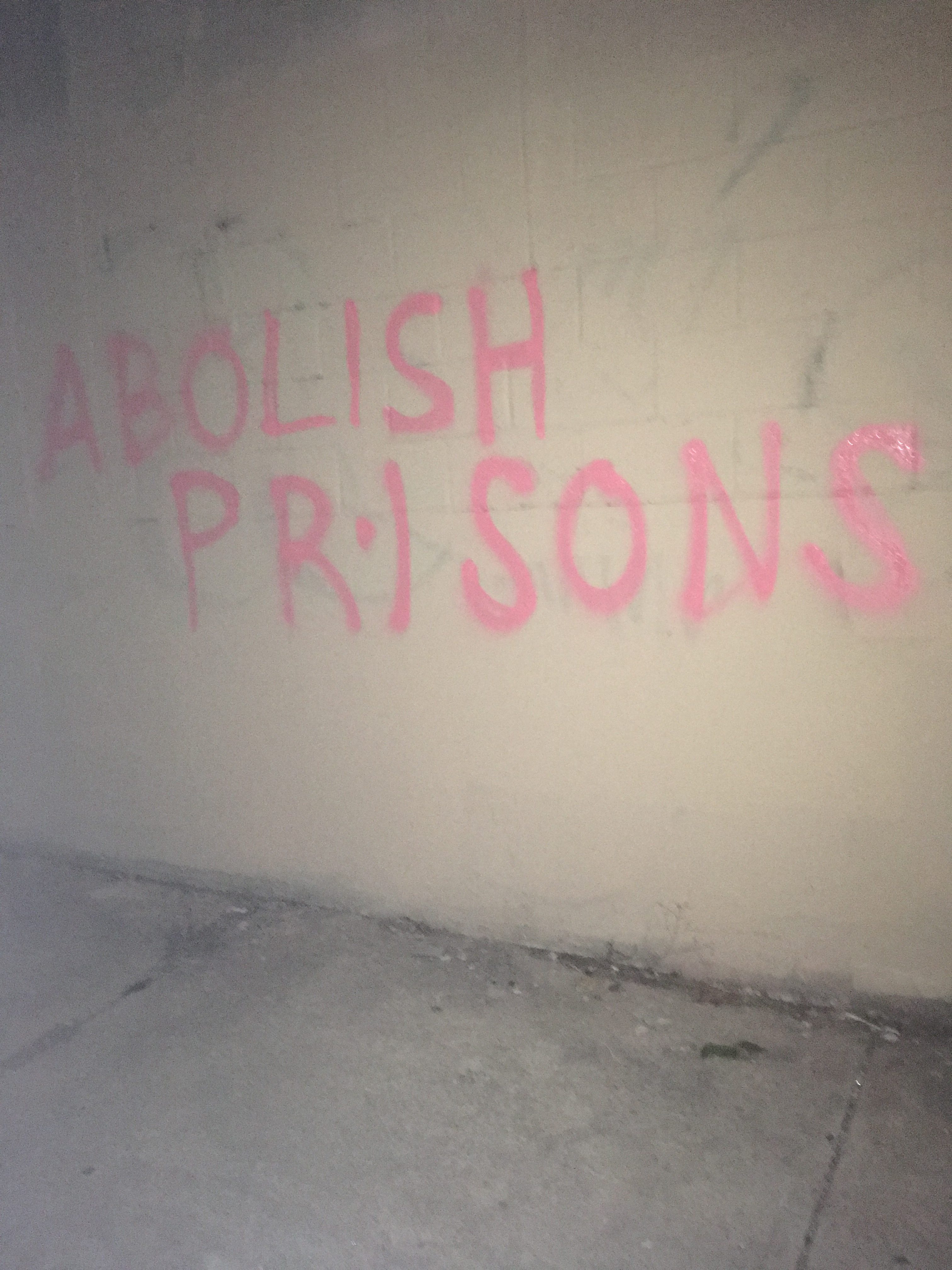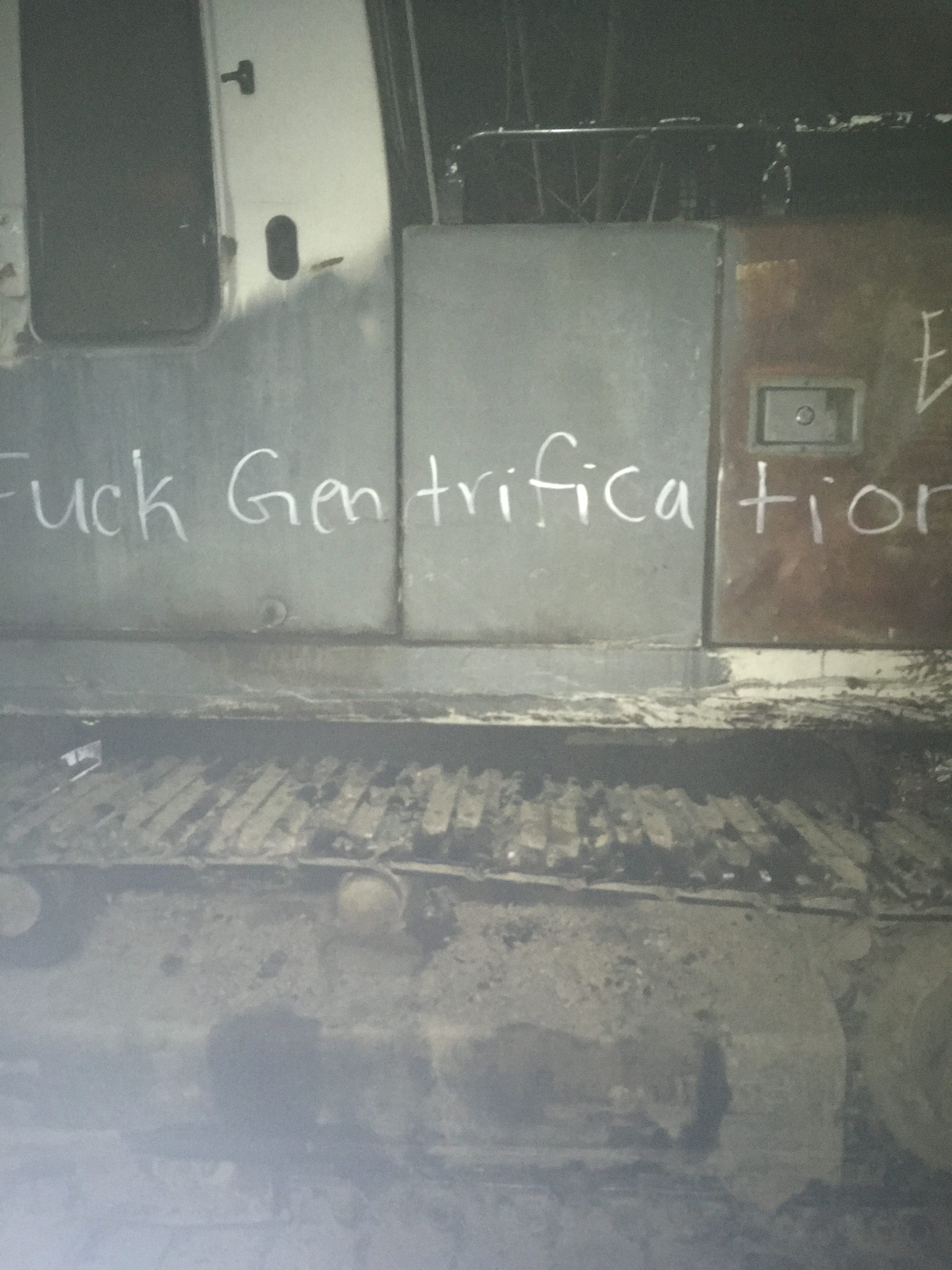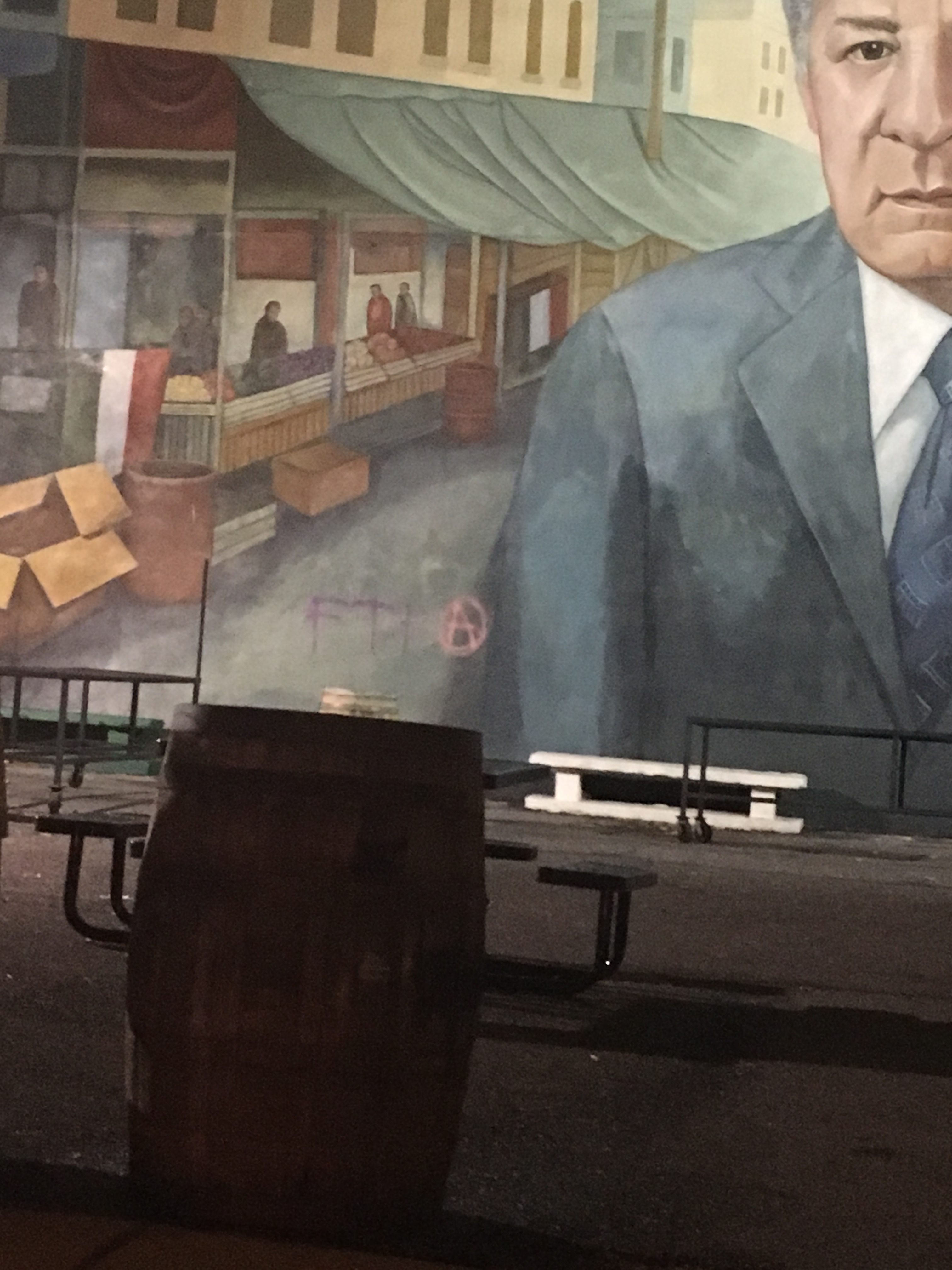The following is a selection from a transcript of a podcast interview with Black and queer abolitionist writer Stevie Wilson. Stevie is being held captive by the Pennsylvania Department of Corrections and was recently released from solitary confinement. He speaks about the importance of abolitionist study, as a space of common encounter that undermines the hold that the carceral state has on our lives, both inside and outside prison walls.
So we know that you recently got released from, from solitary, I believe on October 17. Right?
Yeah, I got transferred from Smithfield and I’m now at SCI Fayette. Um, you know, sometimes when you’re an ally behind the walls… Sometimes means more than being an ally, being an accomplice actually. And, uh, it was a situation where a prisoner was attacked by two guards and, I kinda had an accident that we did online and the administrators found out about the accident. I was behind it and so they, uh, they moved to get me out of the way and kind of bury me in the hole. But thankfully because of the support that I had outside, it applied pressure on them and they got me out of the hole, but they transferred me to another prison. So now I’m — I was three and a half hours with my family. Now I’m six hours with my family, about 40 minutes South of Pittsburgh.
Wow. So this is basically in direct retaliation against organizing on the inside, right?
Definitely. It’s something that’s to be expected though. When you do this type of work behind the walls, it’s not about being an ally. You will become an accomplice and so whatever that person is doing they’re going to try do to you also. So I knew at one point they were trying to bury the young man in the hole because when they attack us, they try to flip it and say, you know, we attacked them. So they’ll bury them from six to nine months in the hole. And because we were successful in getting them out of the hole until a safer prison, you know, I became a target after that he was gone. And so, uh, I was able to go bother them and I did once again because of the people like Critical Resistance. I was able to come out of the hole, I did about two months battling with these people. We were able to come out of the hole and um, and, and be placed at Fayette now. So… but the work doesn’t stop. The work doesn’t stop you know?
Yeah. Do you have a sense that this is also an indirect attack on the sort of self organized abolitionist study groups inside as well?
Yeah. I think, I think…well, I’m gonna tell you something: That prison was a little different where many of the groups that we were doing were actually taking the place of programs that they had actually discontinued, right? So there was a lack of programming there. So we were putting together the transformative justice group and it was something that they liked, they gave us space for it. They gave us space for it you know, um, and what’s happening in Pennsylvania is because of the, the rehabilitation programs have been gutted. The educational programs have been gutted. There has been a space opened up for prisoners to initiate groups, right? Um, and so we did it at Smithfield, you know, and I’m here at Fayette, it’s kind of the same thing now, you know, where people don’t have anything to do when the prison wants them to do something, you know. So once again, there is an opening for us here.
So tell us a little bit more about the abolitionist study group inside that you helped run. Can you tell us more about what y’all do?
Well, the first one we called 9-9-71, obviously in reference to Attica and it was a general abolitionist study group. We started with something like “Are Prisons Obsolete?” By Angela Davis and what we do is we do a chapter reading and then we would come back and we have discussion questions. We focus a lot on definitions because this is the first time many people were hearing about abolition. You know, when you think of a world without prisons, they thought we were crazy. You know, the first thing out of their mouths, “what are we going to do with the murderers and rapists and things like that?” And so we had to really talk about basic definitions and things like safety and community and things like that. So that was the largest group because it was more generalized. We also had a group called Circle Up, which is a transformative justice group, most of those men there were under the age of 25, about 23 young men. And they were doing a program called Circle Up and it was talking about transformative justice. How we apply, inside the prison in and our families and our communities. SAS was a Queer Aboltiionist group… That group we started because it was sometimes difficult to talk about those types of issues in 9-9-71. So we had a group that went through “Captive Genders” and queer injustice and works like this from an abolitionist perspective. And then we also had book clubs… that has been taken over by Haymarket books now. So here at Fayette we are going to be doing it and Haymarket books will be providing the books for us. So we’re happy to have that program still continue.









